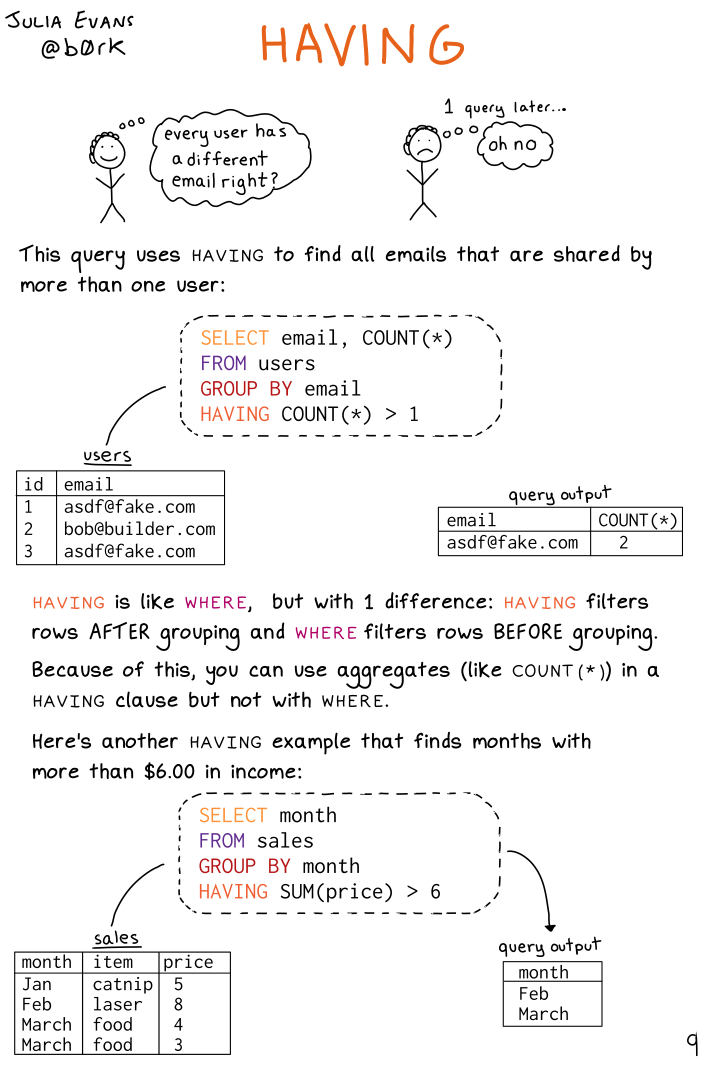
Here's a preview from my zine, Become a SELECT Star! If you want to see more comics like this, sign up for my saturday comics newsletter or browse more comics!
 get the zine!
get the zine!
read the transcript!
person: every user has a different email right?
1 query later… person, now sad: oh no
This query uses HAVING to find all emails that are shared by more than one user:
SELECT email, COUNT(*)
FROM users
GROUP BY email
HAVING COUNT(*) > 1
users:
id 1, email asdf@fake.com
id 2, email bob@builder.com
id 3, email asdf@fake.com
query output:
email asdf@fake.com, COUNT(*) 2
HAVING is like WHERE, but with 1 difference: HAVING filters rows AFTER grouping and WHERE filters rows BEFORE grouping.
Because of this, you can use aggregates (like COUNT (*)) in a HAVING clause but not with WHERE.
Here’s another HAVING example that finds months with more than $6.00 in income:
SELECT month
FROM sales
GROUP BY month
HAVING SUM(price) > 6
sales:
month: Jan. item: catnip price: 5
month: Feb item: laser price: 8
month: March item: food price: 4
month: March item: food price: 3
query output:
month: Feb
month: March